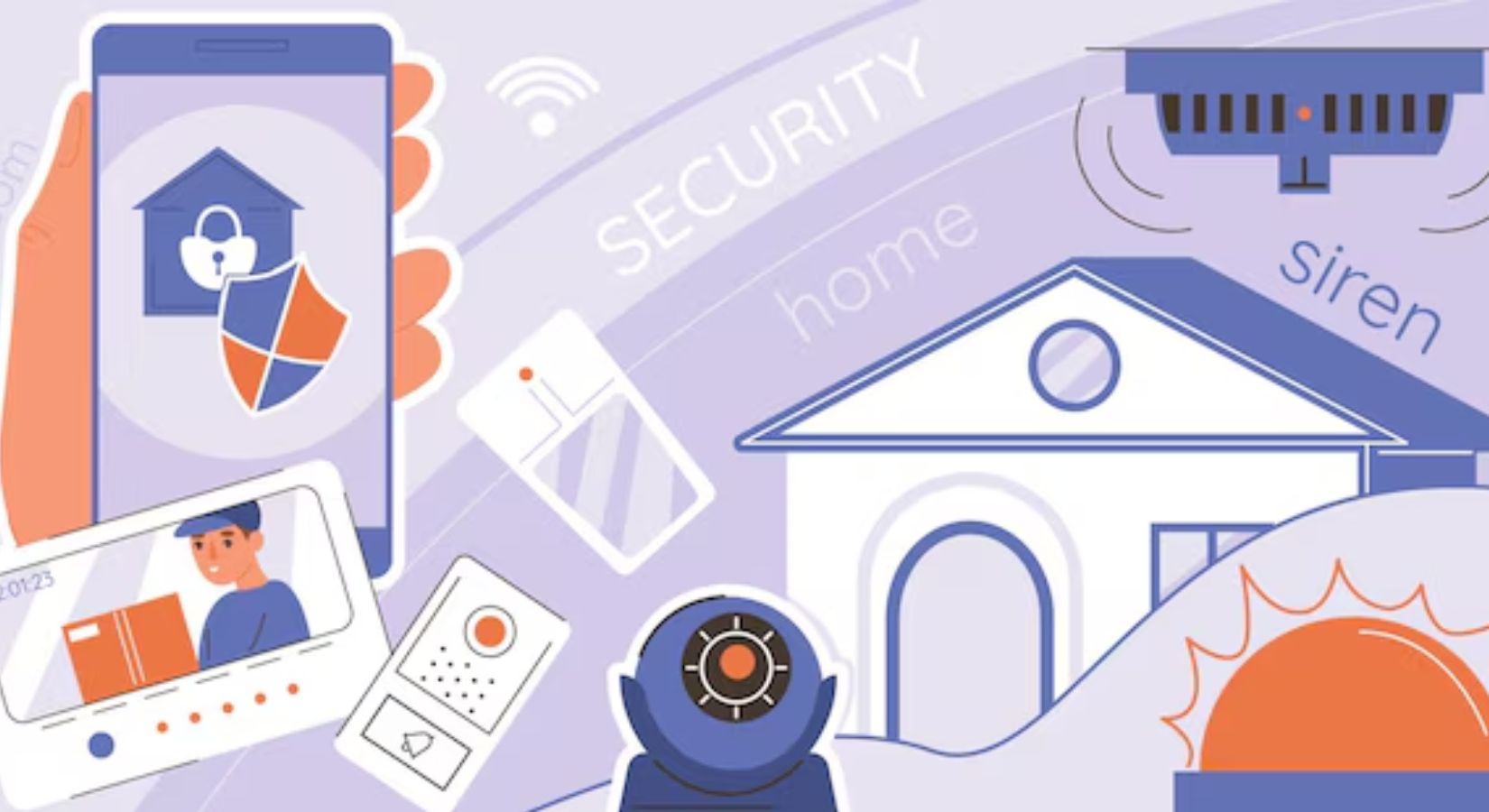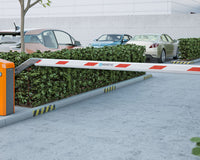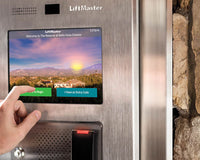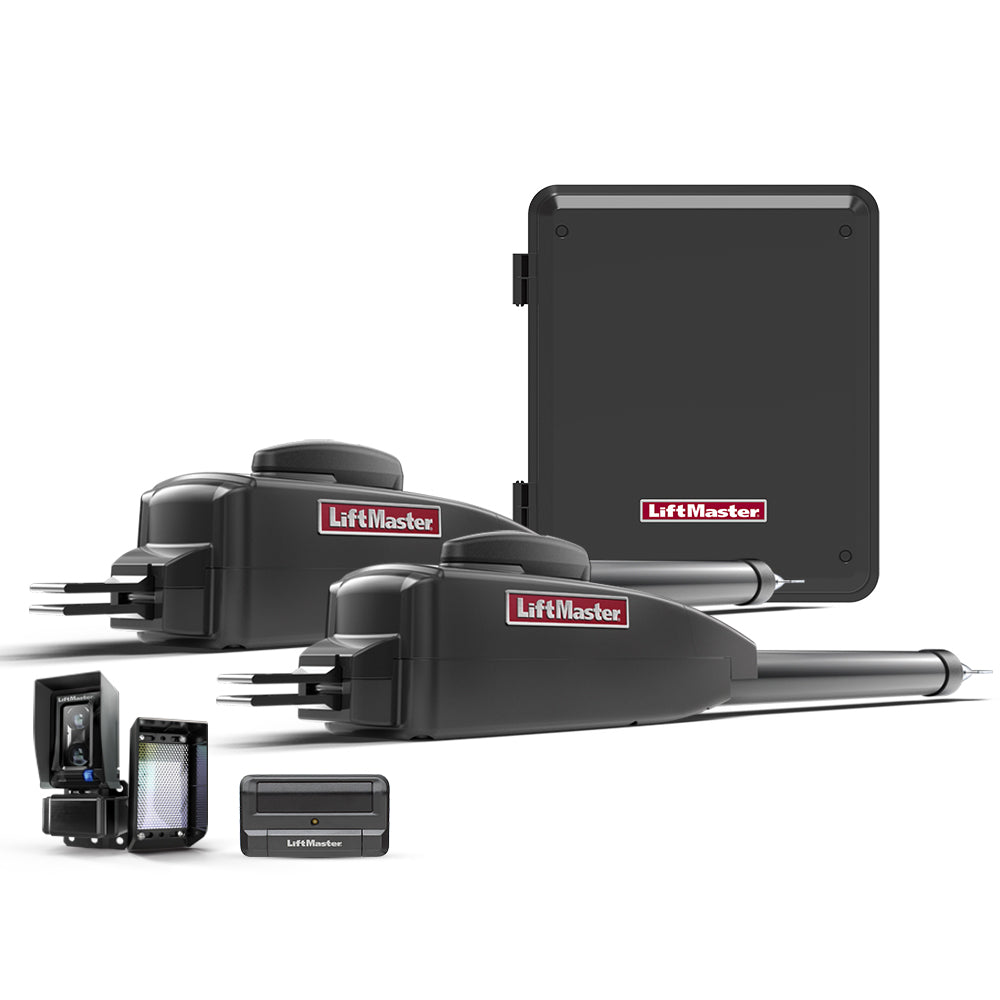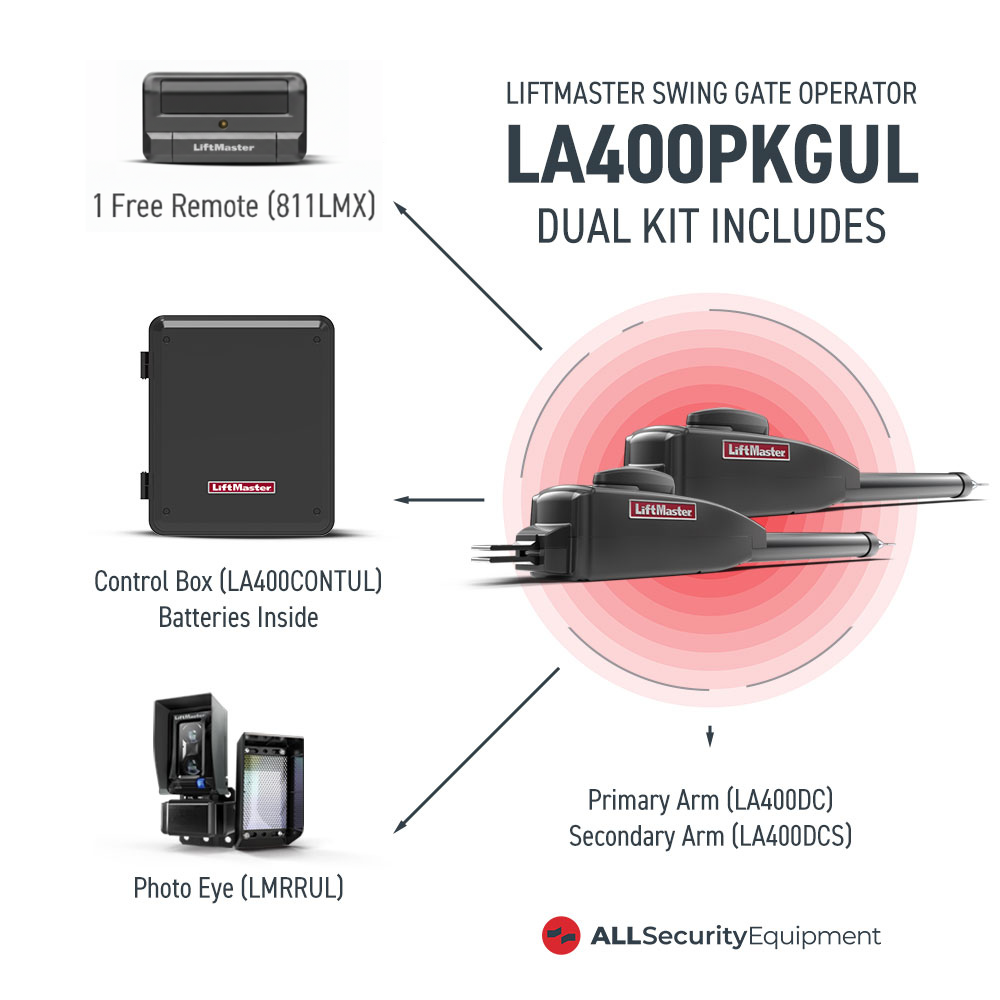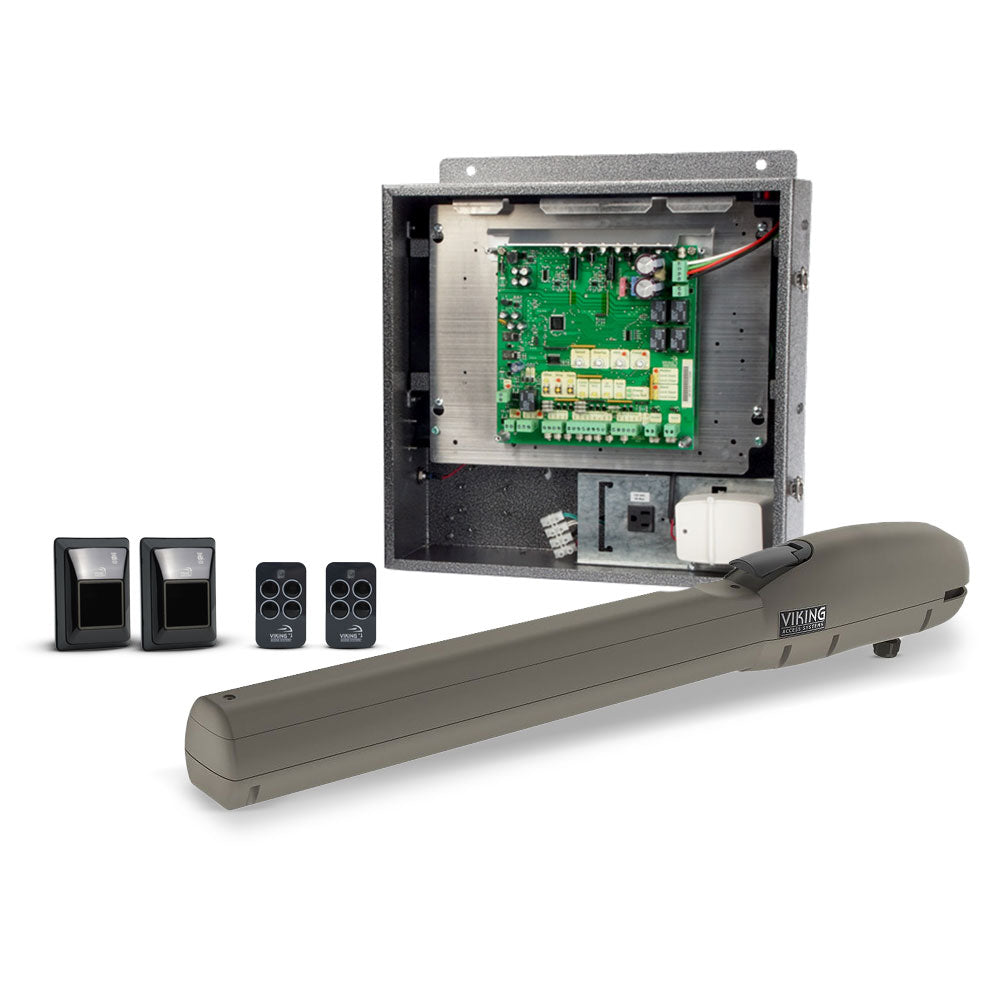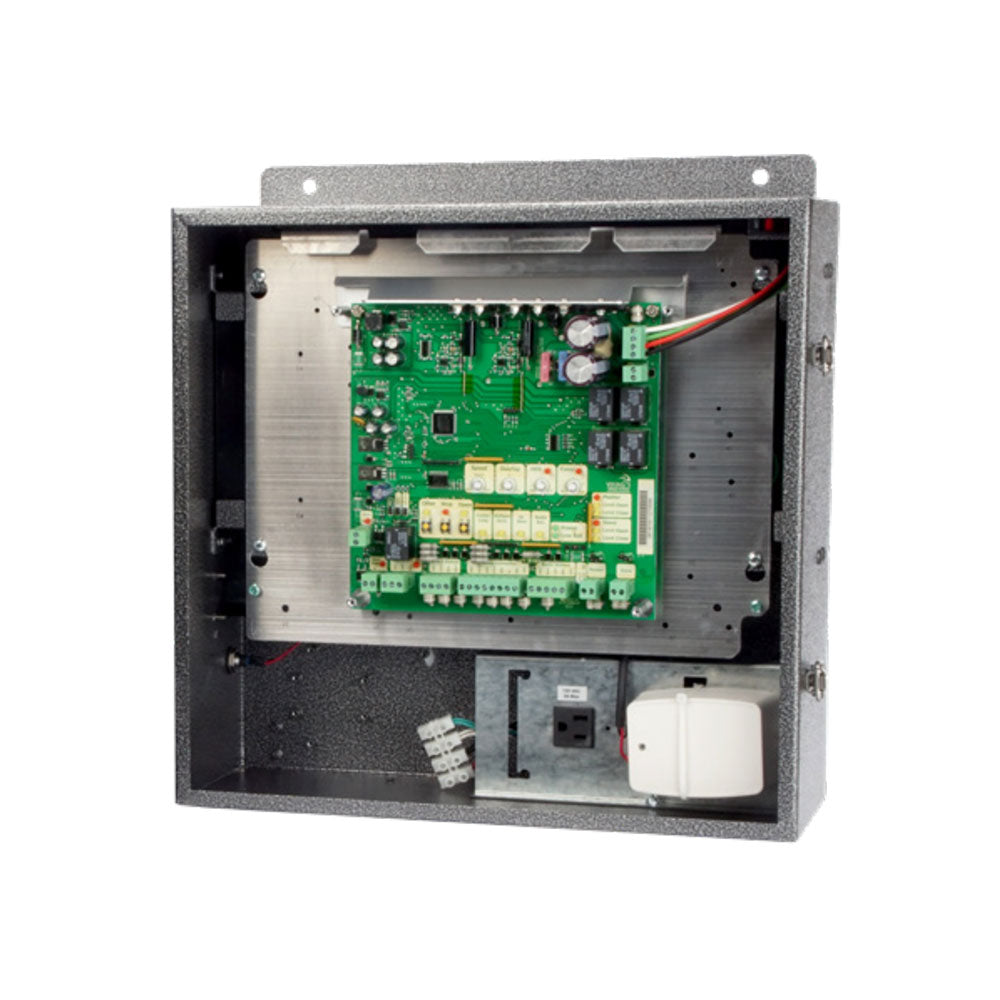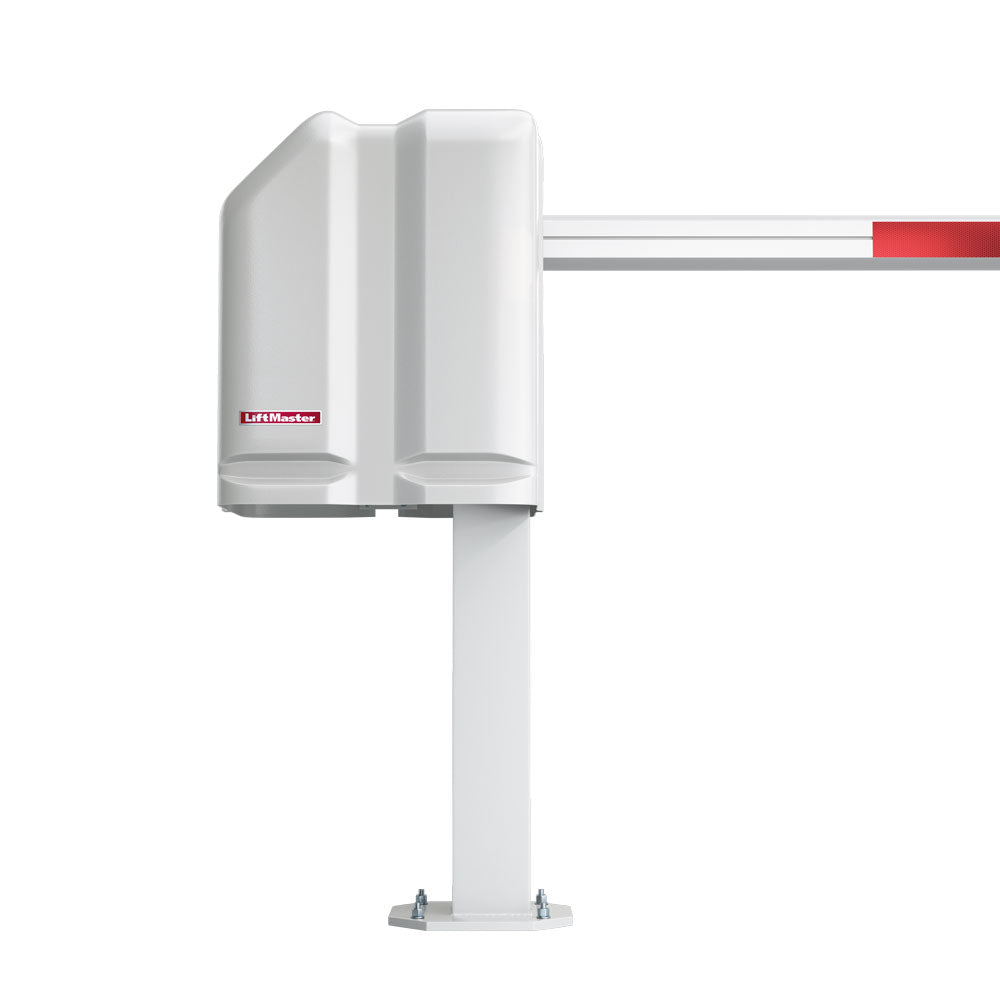Are You Making Your Property a Sitting Duck?
Property crime continues to be a significant concern for property managers and owners across the U.S. From burglaries and vandalism to package theft and even more serious incidents, the potential risks are numerous. A break-in at a residential complex can compromise tenant safety and erode trust, while a similar incident at a commercial property can disrupt operations, damage reputation, and lead to substantial financial losses. These events underscore the critical need for robust security measures.

While the market offers a wide array of sophisticated security solutions, including advanced surveillance systems, access control technologies, and alarm systems, simply purchasing and installing these tools isn't a guarantee of safety. A truly secure property relies not just on technology, but also on the informed decisions and actions of property managers, owners, and even tenants. Human error, oversight, and a lack of understanding regarding best practices can often undermine even the most advanced security infrastructure.
Today’s All Security Equipment blog post addresses these very issues. We'll unveil the top 10 security mistakes that property managers and owners commonly make, and, more importantly, provide actionable strategies to avoid them.
1 - Failing to Lock Windows or Doors
It sounds incredibly basic, yet failing to lock windows and doors remains a significant vulnerability. Many property owners and managers assume that intruders will always attempt forced entry, but the reality is that criminals often look for the easiest and least conspicuous access point.

The consequences of neglecting to lock windows and doors can be far-reaching. A seemingly minor lapse can lead to burglaries, theft of valuable assets, and even more serious security breaches.
What to do:
-
Implement a strict lock-up procedure: Ensure all doors and windows are locked at the end of the day or after tenants/employees leave.
-
Promote security awareness: Regularly remind occupants of the importance of locking their doors and windows, even for short periods.
-
Utilize a checklist system: Have staff verify that all access points are secured.
-
Consider smart locks: Implement smart locks for remote locking and monitoring capabilities.
-
Install window sensors: Install window sensors that trigger alarms if opened.
-
Regularly inspect doors and windows: Check for any signs of damage or weakness.
2 - Improperly hidden spare keys
The convenience of hiding a spare key outside seems appealing, but it's a significant security risk. Common hiding spots like under a doormat, in a fake rock, or beneath a flowerpot are well-known to burglars. These locations offer little to no actual concealment, essentially providing an open invitation to anyone looking to gain unauthorized access to your property.

A burglar gaining access through a hidden key can lead to theft, vandalism, and even more serious security breaches.
What to do:
-
Keyless Entry Systems: Install smart locks that utilize keypads, biometrics, or smartphone access, eliminating the need for physical keys altogether.
-
Secure Lockboxes: Use a wall-mounted or portable lockbox with a combination or key access to store spare keys securely. Ensure the lockbox itself is securely attached to a solid surface.
-
Property Management Services: If applicable, utilize the key management services offered by your property management company.
-
Change Locks After Key Loss: If a key is lost or stolen, immediately change the corresponding locks to prevent unauthorized access.
3 - Unlit or Unkempt Green Areas/Yard
Overgrown landscaping and poorly lit outdoor areas create ideal hiding spots for intruders. Thick bushes, untrimmed trees, and dark corners provide cover, allowing criminals to approach your property undetected and potentially peer into windows to assess the interior. This lack of visibility significantly increases the risk of break-ins and other security breaches, as it eliminates a crucial deterrent: the fear of being seen.

The consequences of neglecting outdoor lighting and landscaping can be severe. Beyond the increased risk of burglaries, unkempt green areas can also attract pests, create fire hazards, and even obstruct security cameras, rendering them ineffective. In residential settings, overgrown landscaping can make tenants feel unsafe and diminish the curb appeal of the property.
What to do:
-
Strategic Outdoor Lighting: Install motion-activated lights, especially around entryways, walkways, and vulnerable areas like windows and backyards. Consider using solar-powered lights for energy efficiency.
-
Regular Landscaping: Trim bushes and trees regularly to ensure they don't obstruct windows, doors, or security cameras. Maintain a clear line of sight around the perimeter of the property.
-
Security Cameras with Night Vision: Install security cameras with night vision capabilities to monitor the property even in low-light conditions.
-
Consider Professional Landscaping: Consult with a landscaping professional to design a security-conscious landscape plan
4 - Over-sharing Home Activity On Social Media
In today's digital age, the urge to share life events and exciting purchases on social media is strong. However, oversharing seemingly innocuous details about your home, possessions, or travel plans can inadvertently provide valuable information to potential burglars. Announcing a vacation, showcasing expensive new electronics, or even revealing daily routines can make your property a target for those looking to exploit vulnerabilities.
Remember, your audience may extend beyond close friends and family, and the information you share could fall into the wrong hands.
Burglars can use this information to determine when your property is likely to be unoccupied, what valuable items you own, and even the layout of your home. This knowledge allows them to plan their actions strategically, increasing the likelihood of a successful break-in.
What to do:
-
Review Privacy Settings: Ensure your social media profiles have the strictest privacy settings enabled, limiting the visibility of your posts to only trusted connections.
-
Avoid Sharing Travel Plans: Refrain from posting about upcoming trips or vacations until you have returned home.
-
Be Mindful of Posted Images: Consider what information your photos reveal. Avoid images that showcase valuable items, home layouts, or your daily routine.
-
Limit Personal Information: Avoid sharing details about your daily schedule, such as when you leave for work or when your property is typically unoccupied..
5 - Forgetting to Get to Know the Neighbors
Neglecting to build relationships with your neighbors can be a significant security oversight. A strong sense of community and neighborhood watch fosters a shared responsibility for safety. When neighbors know each other, they are more likely to notice suspicious activity, keep an eye on each other's properties, and communicate potential threats, creating a powerful deterrent for criminals.

A lack of communication and familiarity can create an environment where suspicious activity goes unnoticed. Burglars are less likely to target a neighborhood where residents are actively engaged and looking out for one another. In times of emergency, having established relationships with neighbors can be crucial for receiving assistance and support.
What to do:
-
Introduce Yourself: Make an effort to introduce yourself to your neighbors. A simple hello and brief conversation can be the first step in building a relationship.
-
Participate in Neighborhood Events: Attend community gatherings, block parties, or neighborhood association meetings to connect with other residents.
-
Start a Neighborhood Watch: If one doesn't exist, consider initiating a neighborhood watch program to formalize security efforts and encourage communication.
-
Utilize Online Platforms: Use online neighborhood forums or social media groups to stay informed about local events, share safety tips, and report suspicious activity.
-
Communicate Regularly: Maintain open communication with your neighbors. Share contact information and encourage them to report any concerns or suspicious activity.
6 Failing to secure garage doors
Garages are often overlooked in home security plans, but they represent a significant vulnerability. Many homeowners prioritize securing the main entry points to their homes but neglect the garage, leaving it susceptible to break-ins. This oversight can have serious consequences for the overall security of your property.

What to do:
-
Keep Doors Closed and Locked: Always ensure the garage door is closed and locked, even when you are at home. Make it a habit to check the door before leaving the house or going to bed.
-
Invest in a Smart Garage Door Opener: Upgrade to a smart garage door opener that allows you to monitor and control the door remotely. Many models offer features like automatic closing, alerts if the door is left open, and activity logs.
-
Reinforce the Door: Consider reinforcing the garage door with additional locks or security bars.
-
Secure the Emergency Release: Protect the emergency release mechanism on your garage door to prevent intruders from exploiting it.
-
Consider a Garage Door Sensor: Integrate a garage door sensor with your home security system to receive alerts if the door is opened unexpectedly.
7 - Neglecting to Install Security Systems or Cameras
While basic security measures like locking doors and windows are essential, neglecting to install a comprehensive security system or cameras can be a significant oversight. Security systems act as a powerful deterrent, alerting you and potentially authorities to any unauthorized entry attempts. Cameras provide valuable evidence in the event of a break-in and can help identify perpetrators. Failing to utilize these technologies leaves your property vulnerable and limits your ability to respond effectively to security threats.

The consequences of neglecting security systems and cameras can be far-reaching. Without an alarm system, a break-in may go undetected for an extended period, giving intruders ample time to steal valuables or cause damage.
What to do:
-
Install a Comprehensive Security System: Choose a security system that includes door and window sensors, motion detectors, and a loud alarm. Consider features like remote monitoring, mobile app control, and integration with smart home devices.
-
Strategically Place Security Cameras: Install cameras at key entry points, such as doors, windows, and garages. Consider additional cameras to cover vulnerable areas like backyards, driveways, and hallways.
-
Choose Cameras with Night Vision: Ensure your cameras have night vision capabilities to capture clear footage even in low-light conditions.
-
Display Security System Signage: Place visible signs or stickers indicating that your property is protected by a security system. This can act as a deterrent to potential intruders.
8 - Forgetting About Fire-Safety
Property security extends beyond protecting against intruders; it also encompasses safeguarding against internal threats like fire. While smoke detectors are crucial for early fire detection, fire extinguishers provide a critical first line of defense, empowering individuals to take immediate action and potentially extinguish small fires before they escalate.
The risks of overlooking fire safety are significant. A fire can cause extensive property damage, endanger lives, and disrupt business operations.

What to do:
-
Install Smoke Detectors: Ensure smoke detectors are installed on every level of the property, including inside bedrooms and outside sleeping areas. Test them regularly and replace batteries annually.
-
Provide Fire Extinguishers: Place fire extinguishers in easily accessible locations throughout the property, particularly in kitchens, garages, and near potential fire hazards. Ensure occupants know how to use them properly.
-
Establish Fire Escape Plans: Develop and practice fire escape plans for all occupants, ensuring everyone knows how to evacuate safely in case of a fire.
-
Regularly Inspect Fire Safety Equipment: Conduct routine inspections of smoke detectors, fire extinguishers, and other fire safety equipment to ensure they are in good working order.
-
Maintain Clear Escape Routes: Keep hallways, stairwells, and exits free of clutter and obstructions to ensure safe evacuation.
-
Educate Occupants: Provide fire safety training to occupants, including information on fire prevention, evacuation procedures, and the proper use of fire extinguishers.
9 - Lack of Maintenance: Tech, Cameras and Systems
Even the most sophisticated security technology can become ineffective if not properly maintained. Neglecting regular maintenance of security systems, cameras, and other tech-based solutions can lead to malfunctions, outdated software, and reduced performance. This oversight can compromise the overall security of your property.
The risks associated with neglecting maintenance are significant. Outdated software may have vulnerabilities that hackers can exploit, compromising the system's effectiveness. Dust, dirt, or debris can obstruct camera lenses, reducing image quality and hindering their ability to capture crucial evidence.

What to do:
-
Regularly Inspect and Clean Equipment: Periodically inspect all security devices, including cameras, sensors, and control panels, for any signs of damage or wear. Clean camera lenses and sensors to ensure optimal performance.
-
Update Software and Firmware: Keep all security software and firmware up to date to benefit from the latest security patches and performance improvements.
-
Test System Functionality: Regularly test the entire security system, including alarms, sensors, and cameras, to ensure they are functioning correctly.
-
Schedule Professional Maintenance: Consider scheduling professional maintenance visits with a qualified technician to conduct thorough inspections, perform necessary updates, and address any potential issues.
10 - Lack of maintenance of Locks, Fences and Doors
While investing in high-quality security hardware is essential, neglecting the ongoing maintenance of analog hardware can significantly compromise your property's security. Over time, these components can become damaged, worn, or outdated, reducing their effectiveness and creating exploitable vulnerabilities.
Worn or damaged locks can be easily picked or bypassed, providing unauthorized access to your property. Rusty or broken fences offer little deterrence to intruders, and doors with loose hinges or damaged frames can be easily forced open. Regular maintenance and upgrades are crucial to ensure these physical security barriers remain robust and reliable.
What to do:
-
Regularly Inspect Locks: Periodically inspect all locks for signs of wear, damage, or tampering. Lubricate locks as needed and replace any that are compromised.
-
Maintain Fences and Gates: Repair or replace any damaged sections of fences or gates promptly. Ensure gates are securely locked and hinges are in good working order.
-
Inspect Doors and Frames: Check doors for proper alignment, secure hinges, and any signs of damage or weakness. Repair or replace any compromised components.
-
Reinforce Doors and Windows: Install additional security measures, such as door reinforcement plates or window security film, to enhance their resistance to forced entry.
-
Consider Professional Inspections: Schedule periodic inspections by a qualified locksmith or security professional to assess the condition of your locks, fences, and doors and recommend necessary maintenance or upgrades.
Beyond the Locks: Invest in Peace of Mind
By addressing these common security mistakes, property managers and owners can significantly reduce the risk of break-ins, theft, and other security breaches. Remember, a proactive approach to security involves not only investing in technology and hardware but also fostering a culture of awareness and implementing consistent best practices.
If you're looking for additional information or need assistance selecting the right security products for your property, don't hesitate to contact All Security Equipment's customer service team. Our experts are available to answer your questions, provide personalized recommendations, and help you create a comprehensive security plan that meets your specific needs and budget.

